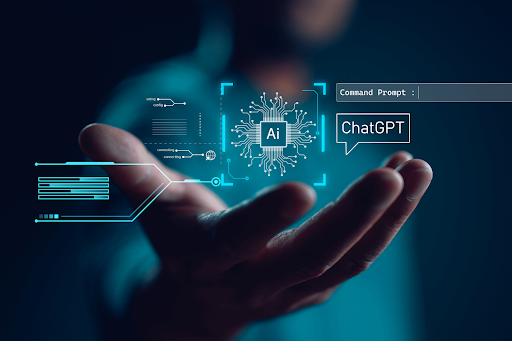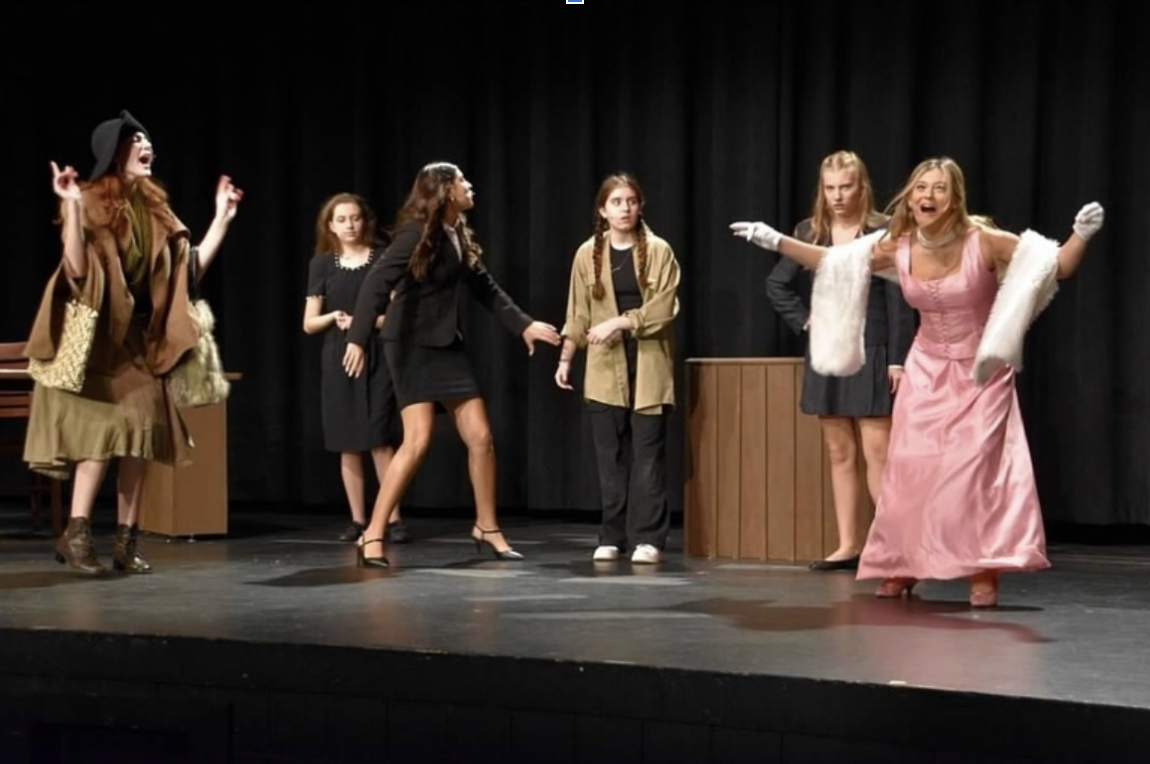Recent technological advancements in the Artificial Intelligence realm has normalized the frequent and unregulated use of softwares, including ChatGPT, in learning environments. While resources like ChatGPT raise the debate on the importance of preserving work integrity and authenticity, this new technology has an array of benefits. The never-ending search for cooking recipes, the perfect outfit, and a simple math problem explanation has been made easier and more efficient thanks to the human-like virtual helper.
ChatGPT is an AI-driven conversational program that is taught through algorithms to generate human-like responses (Pewresearch.org). In high schools and colleges alike, the concern of AI negatively impacting work ethic and learning abilities has become a concern for educators and parents. ChatGPT being easily accessible normalizes the frequent use of AI softwares, which minimizes the need to use one’s brain. In a school setting where learning and exercising the abilities of the human brain is extremely important, the use of ChatGPT is proven to limit the potential of developing minds (National Library of Medicine). The abuse of helpful resources like ChatGPT causes a decline in the trustworthiness of teenagers and young adults.
At Ramapo High School, ChatGPT and the use of it for plagiarism is a serious offense and can lead to consequences. Ramapo takes work integrity seriously and this value has led to the widespread blockage of ChatGPT on the school-issued computers.
Junior Emily McCarthy believes that using ChatGPT for schoolwork can cause students to undervalue the hard work that’s necessary for learning. She says, “I think ChatGPT has harmful effects. Students turn to this software for the wrong reasons and can get in trouble with plagiarism and end up relying on it. I think this could really impact future generations by normalizing the use of Artificial Intelligence for the wrong reasons.”
Some faculty members described ChatGPT as a useful tool that has a multitude of benefits, but the misuse of this technology has caused a decrease in reliability for students to do the right thing. Currently, access is restricted on student MacBooks in Ramapo for ChatGPT and many believe that this is a good thing.
English teacher Ms. Loccke prides herself on valuing and expecting integrity from her students. She talks a lot about the dangers of new technology that compromises the authentic learning of students. Ms. Loccke started the trend throughout Ramapo of phone caddies to limit screen distractions while students are working in the classroom. She said, “Society is struggling on how to deal with controlling AI now that it’s here and becoming a normalized thing. Kids don’t have the maturity yet to control their impulses because no one is focused on the understanding and learning that school is meant for. Kids focus on grades and completing assignments, not recognizing the necessity for trial and error and problem solving in order to fully exercise the brain.”
During adolescence, making decisions and experiencing results firsthand offers lasting lessons more than any advice given by others. This concept of learning can directly be translated to learning in the classroom. Trial and error, problem solving, brainstorming, and analysis are all skills we learn how to face through repetition. Simply using technology to do that process for us does not help with developing independence and critical thinking skills that are invaluable in adult life (rootandblossomcounseling.com). Ms. Loccke swears by the idea that, “we learn through adversity, and if there’s no room for adversity, we compromise our learning.”
Although there are negative consequences to using ChatGPT, there is also research that shows ChatGPT is an incredibly useful device. The intricately programmed software allows for exceptional feedback and constructive criticism when a second voice is needed. Students can receive personalized guidance tailored to their unique writing style, allowing them to pinpoint and focus on specific areas requiring improvement (National Library of Medicine).
Junior Emily McCarthy stated, “I think it can increase people’s education and open up resources that weren’t available. For example, it can be helpful to guide students and young people with more time consuming tasks such as writing emails, brainstorming ideas, finding sentence starters and answering lingering questions.”
While the integration of ChatGPT into high schools raises concerns about academic integrity and critical thinking, it also offers opportunities for personalized learning and different perspectives that are worthy of explororation.






